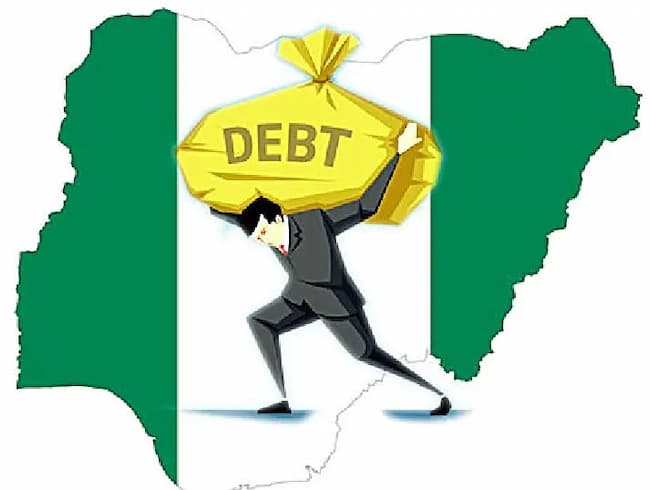Nigerian states have collectively spent about N139.92 billion on servicing external debt in the first half of 2024. This is according to an analysis of Federal Account Allocation Committee (FAAC) data from the National Bureau of Statistics (NBS). The amount spent is an increase of 122% from the N63.06 billion spent in the same period last year.
What the data says
The data shows that states have moved from spending around N9 billion to over N20 billion monthly, which is more than double debt service cost likely due to the naira devaluation.
- In January 2024, Nigerian states spent N9.88 billion on external debt servicing, a decrease from N13.67 billion in January 2023. This reduction of 27.7% suggests that some states may have fewer debt service obligations for this month. Also, the exchange rate traded mostly between N830/$1 and N1,000/$1, which was the lowest range within the period analyzed in this report. It appears that the exchange rate factor was yet to be felt in the first month of 2024, as the amount deducted is the same as the average monthly amount deducted for most of 2023.
- By February 2024, debt servicing payments soared to N24.53 billion, a 148.2% increase from N9.88 billion in February 2023. This sharp rise highlights the possibility of currency depreciation impacting repayment costs. Such a leap indicates heightened financial pressures on state budgets.
- March 2024 saw the highest expenditure on debt servicing at N40.41 billion, marking a 309.1% increase compared to March 2023’s N9.88 billion. This dramatic escalation could be attributed to higher maturing debt obligations at the end of a quarter.
- From April to June 2024, the total external debt servicing costs stabilized at N21.70 billion each month. Compared to the N9.88 billion spent in these same months in 2023, this represents a consistent 119.70% increase each month. In April 2024, there was a reduction from the March peak. The decrease from March may reflect completed debt cycles, yet the continued high levels highlight ongoing financial burdens.
This substantial expenditure highlights the growing fiscal pressure on state governments as they grapple with mounting debt obligations.

Kaduna and Lagos Lead in external debt servicing expenses
- Kaduna and Lagos states were the most prominent spenders, with Kaduna allocating N23.08 billion and Lagos committing N32.44 billion over the six months. Kaduna witnessed a nearly threefold increase in its external debt servicing, rising from N9.89 billion, an increase of 133%.
- Lagos State, another major economic hub, also saw a significant escalation in debt servicing costs. The state’s external debt service costs surged from N16.88 billion in the first half of 2023 to N32.44 billion in 2024, an increase of 92%.
- These two states paid 40% of the total external debt servicing costs for the period under review in 2024.
- Similarly, Cross River and Bauchi states experienced considerable increases in their debt servicing obligations. Cross River’s debt servicing costs escalated dramatically from N2.21 billion in 2023 to N7.87 billion in 2024, increasing by 256%. Bauchi State also saw its debt servicing expenses surge from N3.28 billion to N6.33 billion during the same period, a rise of about 93%.
- Ogun State also saw a marked increase in its external debt servicing costs, with expenditures rising from N1.57 billion in 2023 to N4.29 billion in 2024, reflecting a 173% increase. Similarly, Oyo State’s debt servicing costs rose significantly, from N2.61 billion in 2023 to N6.36 billion in 2024, marking a 144% increase.
- Rivers State also witnessed a significant increase in its external debt servicing costs, rising from N1.76 billion in 2023 to N4.62 billion in 2024, a 162% increase.
The data paints a picture of escalating fiscal pressure on Nigerian states as they continue to service their external debt obligations.
What you should know
Nairametrics earlier reported that at least three Nigerian states—Ekiti, Cross River, and Ogun—have expressed concerns over the rising costs of foreign debt service due to severe foreign exchange volatility.
One of the states called for a possible suspension of the debt repayment for multilateral loans to ease their cash flow.
The Commissioner of Finance of Ekiti State noted that the financial strain caused by rising exchange rates has escalated the costs of foreign debt repayments. He also noted that significant deductions from the statutory revenue for savings have drastically reduced state balances.
Similarly, the Commissioner of Finance of Cross River State expressed fears about the state’s ability to fund capital projects due to reduced revenues.
He suggested a suspension of certain deductions, including those for multilateral loan repayments, especially when distributable revenue is low.
As states struggle with increasing debt servicing costs, they have been working to decrease their debt stock. In Q1 2024, states’ total domestic debt dropped by 31% from N5.86 trillion in Q4 2023 to N4.07 trillion and by 26% from N5.48 trillion in Q1 2023.
However, the marked increase in external debt servicing raises concerns about the fiscal health of Nigerian states, as rising debt costs could divert funds from critical sectors like health and education.
Nairametrics













